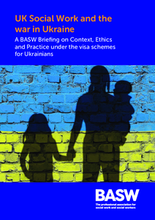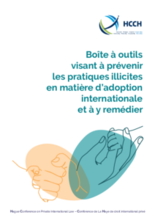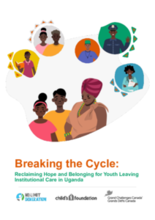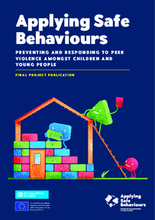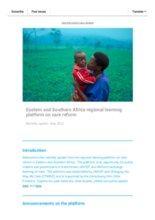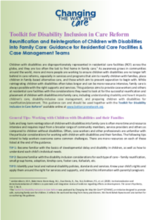Demographic Data:
|
Sources: World Bank, UNDP, DHS 2010-11 |
Displaying 861 - 870 of 14347
National Network for Children (NNC) released its monitoring Report Card 2023 which evaluates the progress of Bulgarian state care institutions in eight areas – Child participation, Child Welfare, Family Environment and Alternative care, Protection from all forms of Violence, Child Justice, Early Childhood Development, Child Health, Education, Sport, Culture and Leisure.
Maud de Boer-Buquicchio, CHIP President, discusses the measures in place to ensure that the many children that crossed the Polish/Ukraine border alone travelled with identity documents that would allow them to access child protection measures as they proceed on their journey.
The focus of this document is to support, inform and empower social workers across the UK in their ongoing practice and consideration of issues that arise in relation to people arriving and staying under the UK Ukraine visa schemes.
Cette boîte à outils fournit aux Autorités centrales un modèle sur la manière dont elles pourraient répondre aux demandes des victimes d'adoptions illégales et illicites.
This is an introduction to the training series produced by Child's i Foundation and No Limit Generation and focuses on four key areas: trauma and stress, depression and suicidal thoughts, anxiety, and loss and grief.
This new body of research from Chapin Hall, a research and policy center that focuses on child welfare and family well-being at the University of Chicago, finds that material hardship increases the risk for child welfare involvement due to neglect and abuse, and when families are given cash assistance, child welfare involvement is reduced.
The project aims to make children and young people active agents in creating a safe environment for themselves and their peers, and to enable professionals who work with and care for children and young people to respond appropriately to peer violence amongst them.
Changing the Way We Care prioritizes scaling family care as part of care reform. To support global efforts, CTWWC developed a conceptual framework to scaling within the countries where it works. The country-level conceptual framework presents scaling as a seven-step process. Scaling approaches vary across contexts and countries with there being no one-sized fits all approach.
This guidance aims to provide case workers and others at residential care facilities with the considerations they need to look at for the successful reunification and placement of children with disabilities into family care, including understanding disability and how it impacts children’s care, disability-inclusive case management, and preparing children with disabilities for reunification/placement.


